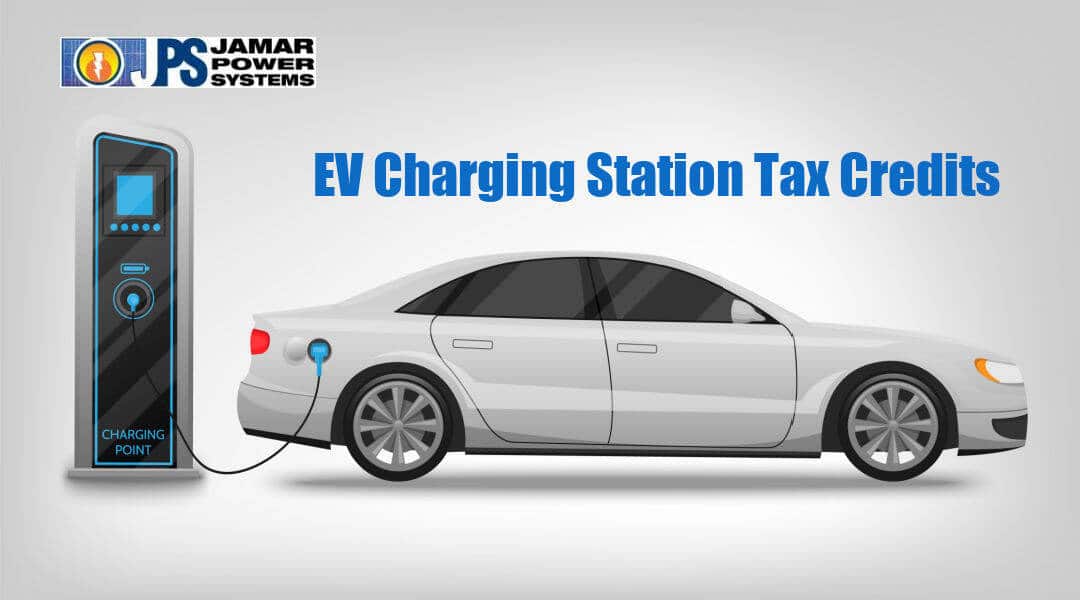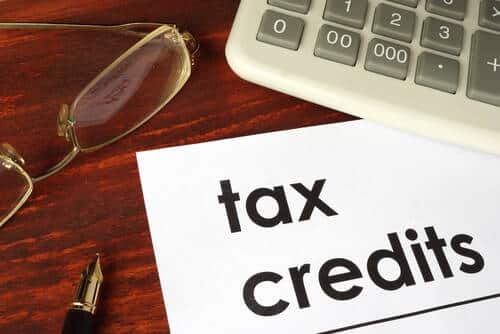EV Charging Station Tax Credits
The U.S. government has recently extended and expanded the tax incentives for electric vehicles (EVs) and EV charging stations.
The new Inflation Reduction Act of 2022 extends the tax credits for EVs for ten years until 2032.
[2025 UPDATE] THESE TAX CREDITS NOW END ON DECEMBER 31, 2025 as a result of the 2025 Budget Reconciliation Bill passed by Congress and signed by the President July 4, 2025.
A federal tax credit reduces the tax owed to the government or increases your tax refund.
Thus, if you own or intend to buy an electric vehicle or a charging station, read on to understand how the EV charger tax credit system works.
Are EV Chargers Tax Deductible?
No, EV chargers are not tax deductible. Better than that is the available federal income tax credit for purchasing and installing EV charging systems.
The government introduced the EV tax credits to reduce electric vehicle purchase and ownership costs.
The tax credits incentivize individuals and businesses to purchase electric vehicles and install EV charging stations.
The cost of installing an EV charger can be relatively high due to the following:
- Cost of buying the EV charger
- Cost of installation
- Cost of equipment necessary for installation
- The cost of hiring a technician
Therefore, the new tax credits help individuals and businesses save money when buying or installing electric vehicles and EV charging systems.
The IRS Form 8911 details how much is available as a tax credit.
Tax credits of 30% of the total cost or $1,000, whichever is greater, are available for EV charging stations and their installation.
How Do I Claim Tax Credits For A Plug-In Electric Vehicle?
Tax credits are available for the purchase of a qualified electric vehicle (EV).
You can request the tax credits by filling out a Qualified Plug-in Electric Drive Motor Vehicle Credit form 8936 from the IRS.
The steps you need to take to claim your tax credits include the following:
- Purchase an electric vehicle and its charger.
- Install the home EV charger.
- Keep all your receipts.
- Follow the instructions of IRS form 8936.
Tax credits of up to $7,500 are available for new electric vehicle purchases and up to $4,000 for used EVs.
Note: the EV tax credit can also be transferred to the dealer at the time of purchase, who must apply a price reduction of up to $7,500 to the vehicle.
The tax credit for purchasing a plug-in electric vehicle will vary depending on the following:
- Battery life.
- Year you bought the vehicle.
- The car manufacturer’s phase-out period.
- Whether the vehicle is new or pre-owned.
- The price of the vehicle.
- The make and model of the vehicle.
A list of eligible electric vehicles and their applicable tax credit amounts can be found on the IRS website here.

California Offers Cash Rebates of up to $2,000 for Select EVs.
The state offers rebates through the Clean Vehicle Rebate Project (CVRP) initiative. The rebates exist for individuals or businesses that have bought or leased an electric vehicle.
The CRVP uses a savings calculator to determine the number of incentives you can get.
Cash rebates can be as high as $2,000; incentives can depend on income, type of EV bought or leased, and area of residence.
You need to meet the eligibility criteria to receive California’s rebates. Some of the requirements are:
- Submit a CVRP application within three months of buying or leasing the EV.
- Be an entity based in California when purchasing or leasing the EV.
- Currently, the CRVP does not apply to Tesla cars because of the vehicle’s increased price.
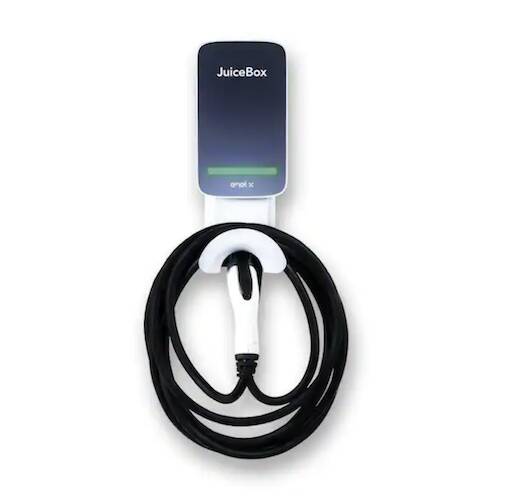
How Does The EV Charging Station Tax Credit Work?
The residential EV charger tax credit system applies to the cost of buying and installing an EV charging station.
The tax credit works by offering a tax credit of 30% of all costs you have incurred by purchasing and installing EV chargers up to $1,000 total credit.
The tax credit for a commercial EV charger was $30,000. The new Inflation Reduction Act increased that tax credit to $100,000 per EV charger. But this only applies to EV chargers installed after December 31, 2022.
Does Tesla Home Charger Qualify for The Federal Tax Credit?
Yes, the Tesla home charger is eligible for a federal income tax credit.
You must keep all receipts related to the purchase and installation of a Tesla home charger.
In addition to the EV charger federal tax credits, other incentive programs are available at the state level.
Some states incentivize EV charger installations with rebates through public utility companies.
For instance, California has the following incentives:
- 30% of the total cost up to $1,000 for a networked EV charger (to a solar energy system).
- 30% of the total cost up to $400 for non-networked charging equipment (tied to the electric grid).
The rebates for EV chargers will thus depend on your state and the type of charger you want to buy.
It’s important to note that the EV charger rebates work for businesses and individuals.

SDG&E Offers Special Pricing Plans for EV Households.
SDG&E also has unique electricity pricing plans for households with electric vehicles.
Their EV-TOU pricing plans include special features that allow for EV charging during lower-cost off-peak period pricing.
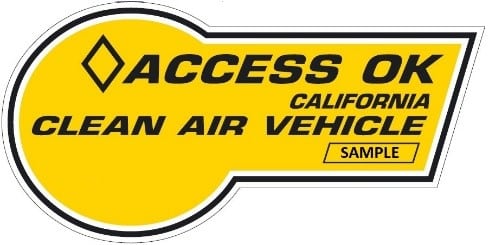
EVs Can Ride The Carpool Lanes!
Another incentive for buying an electric vehicle in California is using carpool lanes.
Electric vehicles can use carpool lanes in California with a CAV decal ID card.
The state provides Clean Air Vehicle decals cards to allow the use of single occupancy use of High Occupancy Vehicle lanes.
The program is an effort by the DMV and the California Air Resources Board to encourage residents to switch to reduce carbon emissions.
The decal card gets issued to the vehicle and not the owner.
The eligibility criteria to get a CAV decal card is:
- Buy a vehicle that meets specific emission standards, such as an electric vehicle.
- You have not received a CVRP rebate.
- You can get a rebate and a decal card based on your income.
Jamar Power Systems Sells & Installs Level 2 EV Charging Stations
We sell and install EV charging stations for homes, apartment complexes, and businesses throughout San Diego County, California. See our service page for more information on EV charging stations & installation.
EV Charger Tax Credit Wrap Up
The Inflation Reduction Act of 2022 revived tax credits to incentivize the public and businesses to install solar, purchase electric vehicles (EV) and improve the EV charging infrastructure.
The goal is to reduce carbon emissions and improve air quality. However, this is a huge change and will create many challenges such as sourcing the raw minerals to produce the batteries, EV range & towing concerns, whether the overall carbon footprint of the EVs are lower, the impact on our economy and Chinese labor concerns. We have 13 years to sort things out before the EV is mandated in California in 2035.
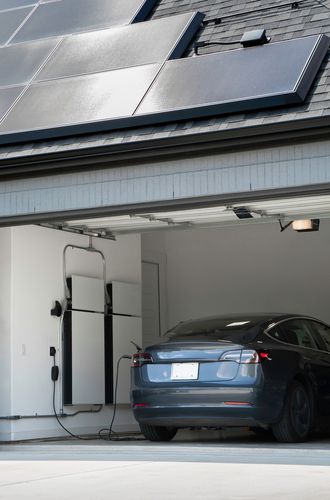
Go Solar & Save Even More!
Using solar energy to charge your electric vehicles can reduce your electricity costs even more and further lower the costs to operate your vehicles.
For more details about EV charging stations and using solar energy to power them, see our article titled, “Solar Charger for Electric Cars.”
Disclaimer: We are not tax advisors. This article is designed to provide basic information on the 2022 federal tax credit changes for electric vehicles (EVs) and EV charging stations. You should use this information as a point of reference rather than as a guide for financial or tax guidance. Consult your tax advisor for exact details and how they apply to you.
- 2025 Federal Tax Credit Changes For Solar Panel Systems & Solar Batteries - July 8, 2025
- How Solar Batteries Work - March 4, 2024
- Solar Battery or Generator for Emergency Backup Power? - January 30, 2024

